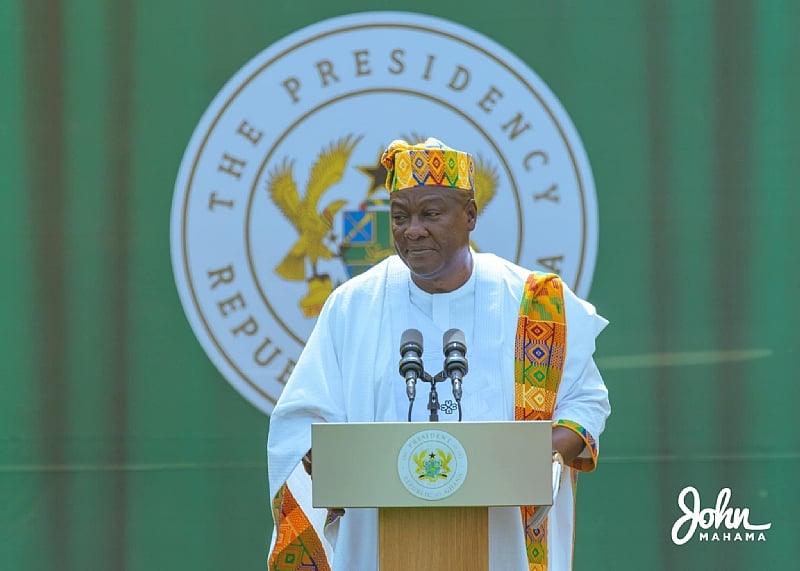Paragraph 1: Presidential Nominations and Parliamentary Procedure
Ghana’s political landscape witnessed a significant development with President John Dramani Mahama’s nomination of three key ministerial figures. Dr. Cassiel Ato Forson was nominated for the crucial role of Minister for Finance, Mr. John Jinapor for the equally vital Ministry of Energy, and Dr. Dominic Ayine for the prestigious position of Attorney General and Minister for Justice. These nominations, communicated to Parliament through an official message from the President’s office dated January 9, 2025, initiated a formal process within the legislative body. Speaker of Parliament, Alban Bagbin, adhered to parliamentary procedure by referring the nominations to the Appointments Committee. This committee, composed of representatives from both the majority and minority parties, is tasked with scrutinizing the qualifications, experience, and suitability of the nominees before they can assume their ministerial responsibilities.
Paragraph 2: The Appointments Committee’s Mandate and Scrutiny
The Appointments Committee plays a critical role in ensuring the competence and integrity of individuals appointed to ministerial positions. Their mandate encompasses a thorough review of the nominees’ backgrounds, professional experience, educational qualifications, and any potential conflicts of interest. The committee’s scrutiny extends beyond a mere verification of credentials. It involves assessing the nominees’ understanding of the challenges facing their respective ministries, their proposed policy approaches, and their overall vision for the nation’s progress. Public hearings, commonly known as vetting, form a crucial part of this process. During these sessions, the nominees are questioned extensively by committee members, allowing for a public evaluation of their suitability for the roles they seek to occupy.
Paragraph 3: The Significance of the Ministerial Portfolios
The three ministerial portfolios for which nominations were made hold significant weight in the governance of Ghana. The Ministry of Finance oversees the nation’s economic policies, budgetary allocations, and financial management. The Minister for Finance plays a pivotal role in shaping the country’s economic trajectory and ensuring fiscal stability. The Ministry of Energy, responsible for the nation’s energy resources, power generation, and distribution, is crucial for sustaining economic growth and development. The Minister for Energy must address critical issues such as energy security, affordability, and the development of sustainable energy sources. The Attorney General and Minister for Justice, as the chief legal advisor to the government, upholds the rule of law, ensures justice and fairness in the legal system, and represents the state in legal matters. This role demands a deep understanding of the law, unwavering integrity, and a commitment to upholding the principles of justice.
Paragraph 4: Anticipation and Scrutiny: A Departure from "Business as Usual"
The nominations were met with significant anticipation and scrutiny from various stakeholders, including the media, civil society organizations, and the general public. The Minority Chief Whip, Mr. Frank Annoh-Dompreh, signaled a heightened level of scrutiny, cautioning the nominees to be thoroughly prepared for the vetting process. His statement, "it’s not going to be business as usual," hinted at a more rigorous and demanding vetting process than might have been the norm in the past. This declaration underscores the importance of accountability and transparency in the appointment of public officials. It reflects a growing expectation that nominees will be subject to intense scrutiny and must demonstrate their readiness to serve the nation with integrity and competence.
Paragraph 5: The Role of Public Discourse and Engagement
The nomination and vetting process provides an opportunity for public discourse and engagement on issues of governance and leadership. The media plays a crucial role in disseminating information about the nominees, their backgrounds, and their policy positions. This informs public opinion and allows citizens to assess the suitability of the individuals being considered for these important positions. Civil society organizations also contribute to the public discourse by providing independent analyses of the nominees’ qualifications and policy stances. This multifaceted engagement helps to ensure that the appointment process is transparent and accountable, reflecting the democratic principles of the nation.
Paragraph 6: Implications for Governance and the Future
The outcome of the vetting process and the subsequent appointment of these ministers will have significant implications for the governance of Ghana and the future direction of the country. The individuals who assume these key roles will play a crucial part in shaping economic policies, managing energy resources, and upholding the rule of law. Their leadership will influence the nation’s progress on several fronts, including economic development, social welfare, and access to justice. The thoroughness of the vetting process, the level of public engagement, and the eventual appointments will serve as indicators of the government’s commitment to transparency, accountability, and good governance. The nation will be closely watching as this process unfolds, hoping that the individuals appointed to these critical positions possess the vision, competence, and integrity to serve the nation effectively and contribute to its continued progress.














